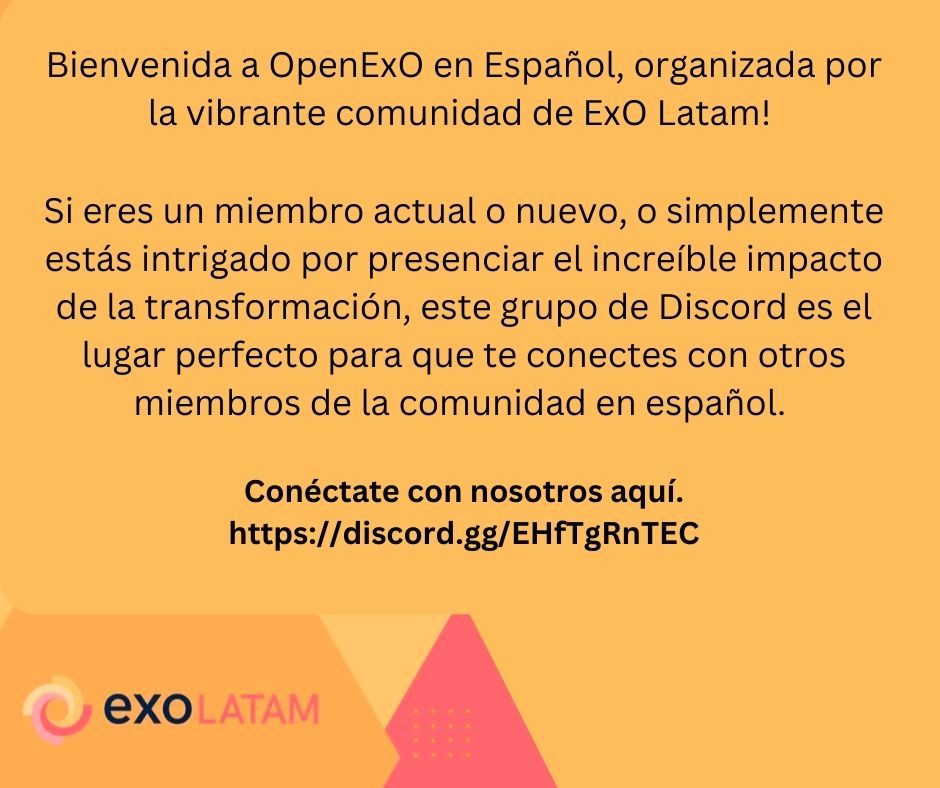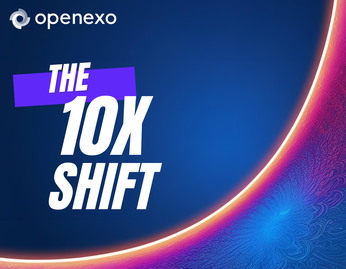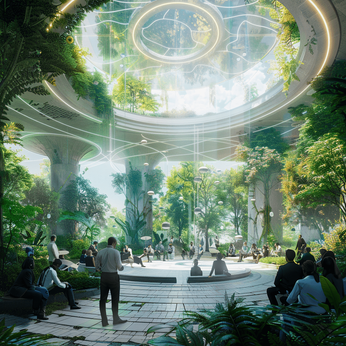
Conquering the Future: How Latin America's Deep Tech is Transforming the World
Investors who seize the opportunity presented by Latin America's Tech ecosystem, which is expected to reach more than $2 trillion by 2030, could be at the forefront of transforming the world through revolutionary technologies in climate action, healthcare, and infrastructure.
With technological development, companies founded on scientific discovery or technological innovation are beginning to emerge, seeking to make the world a better place. They are identified as Deep Tech.
Latin America and the Caribbean have immense potential for reshaping the world. For more than three decades, the region has sent its best scientists to the world's leading universities, where they have acquired knowledge and conducted pioneering research in state-of-the-art laboratories.
Institutions such as the Catholic University of Chile, the University of the West Indies, the Tecnológico de Monterrey, the University of São Paulo, and others have cultivated a community of more than 315,000 scientists who are creating Frontier Technologies in areas such as biotechnology, nanotechnology, advanced materials, additive manufacturing, space technology, information technology, synthetic biology, and many more.
The above-mentioned, coupled with the region's proximity to the world's largest economy - the United States of America - and near-shoring opportunities, make Latin America a promising regional integration with a Deep Tech ecosystem valued at $221 billion dollars in 2020 with the expectation of reaching more than $2 trillion dollars by 2030. This presents an extraordinary opportunity that only a few are prepared to seize.
Some Deep Tech companies have already focused on three areas that can transform the world: Climate Action, Healthcare, and Infrastructure.
Regarding the former, the Prime Minister of Barbados, Mia Mottley, has said, "We will be shocked at the fact that 40% of the world is burning and drowning and those who have the most capacity to do something are doing nothing." However, a duo of biologists, Jacob Roberts and Luis Valencia, designed at AlkaLi Labs a scalable method of extracting lithium from oilfield brines using safe biological processes.,
In Health, Indo-American entrepreneur Naveen K. Jain developed Viome, a health test that analyzes microbial and human gene expressions (mRNA) to provide information about the health and nutrition people need. In his own words, he describes, "Imagine living in a world where disease is optional. What if we could prevent disease by adopting a personalized nutritional plan based on in-depth knowledge about how our unique bodies work?"
In infrastructure, Mexican entrepreneur Walter Mata created WAS Co México, a company that transforms plastic waste to create new polymeric compounds adapted to construction materials in order to build both low-income housing and sports stadiums. Its main objective is to replace conventional/polluting materials with more environmentally friendly materials with better properties and lower prices. Walter is a winner of MIT Innovators Under 35
Peter Thiel, an entrepreneurial hedge fund manager and venture capitalist, states, "The most valuable companies of the coming decades will be created by entrepreneurs who seek to empower people rather than try to make them obsolete." It has been proven that those interested in deep tech investments understand the value of transformative technology.
A few decades ago, it seemed implausible that spaceflight was in the hands of private, commercial organizations; similarly, artificial intelligence is no longer confined to isolated academic labs or applications: it is in our phones, enhancing photos and translating languages in real-time. Both revolutions were made possible by investors who had the vision to back visionary innovators.
First-time venture funds in Deep Tech can have a higher rate of return; they typically start with a small fund, which allows for more focused and strategic investments, and they have the opportunity to prove their investment thesis and build a track record, which attracts more investors in the future and increases initial investment and internal rates of return (IRRs).
Venture capital in the healthcare sector will continue to grow as funding opportunities and incentives persist. The average IRR in this sector between 2010 and 2021 was 27.5% compared to 21.1% for other sectors over the same period. In the climate and environment sector, 90% of carbon emission reductions come from energy efficiency measures and offer an average IRR of 16.7% (companies in Latin America and the Caribbean have an IRR of 13.4% for their renewable energy investments. In infrastructure, a survey revealed that approximately 70% of investors reported achieving results equal to or above their target IRR, which typically ranges from 12% to 14%.
It is clear that deep technology will play an essential role for all of us in the future, but not all are equal. The most successful companies in the next decade will be those that understand how the technology matures over time and know when to act to take advantage of it. The key to harnessing the power of deep tech is to cultivate this awareness in order to identify the sweet spot correctly.
Being genuinely innovative and achieving success requires a certain degree of calculated risk, but understanding what deep tech is makes it much more likely to get the timing right.
#DeepTechEmergence #ScientificDiscovery #TechnologicalInnovation #LatinAmericaPotential #FrontierTechnologies #DeepTechEcosystem #RegionalIntegration #ClimateAction #HealthcareInnovation #InfrastructureDevelopment #TransformativeTechnology #EmpoweringPeople #VentureCapital #InvestmentOpportunities #DeepTechInvestments #HealthTech #CleanEnergy #SustainableInfrastructure #FutureTechnologies #InnovativeSolutions #TimingIsKey #DeepTechAwareness #VisionaryInnovators

ExO Insight Newsletter
Join the newsletter to receive the latest updates in your inbox.









